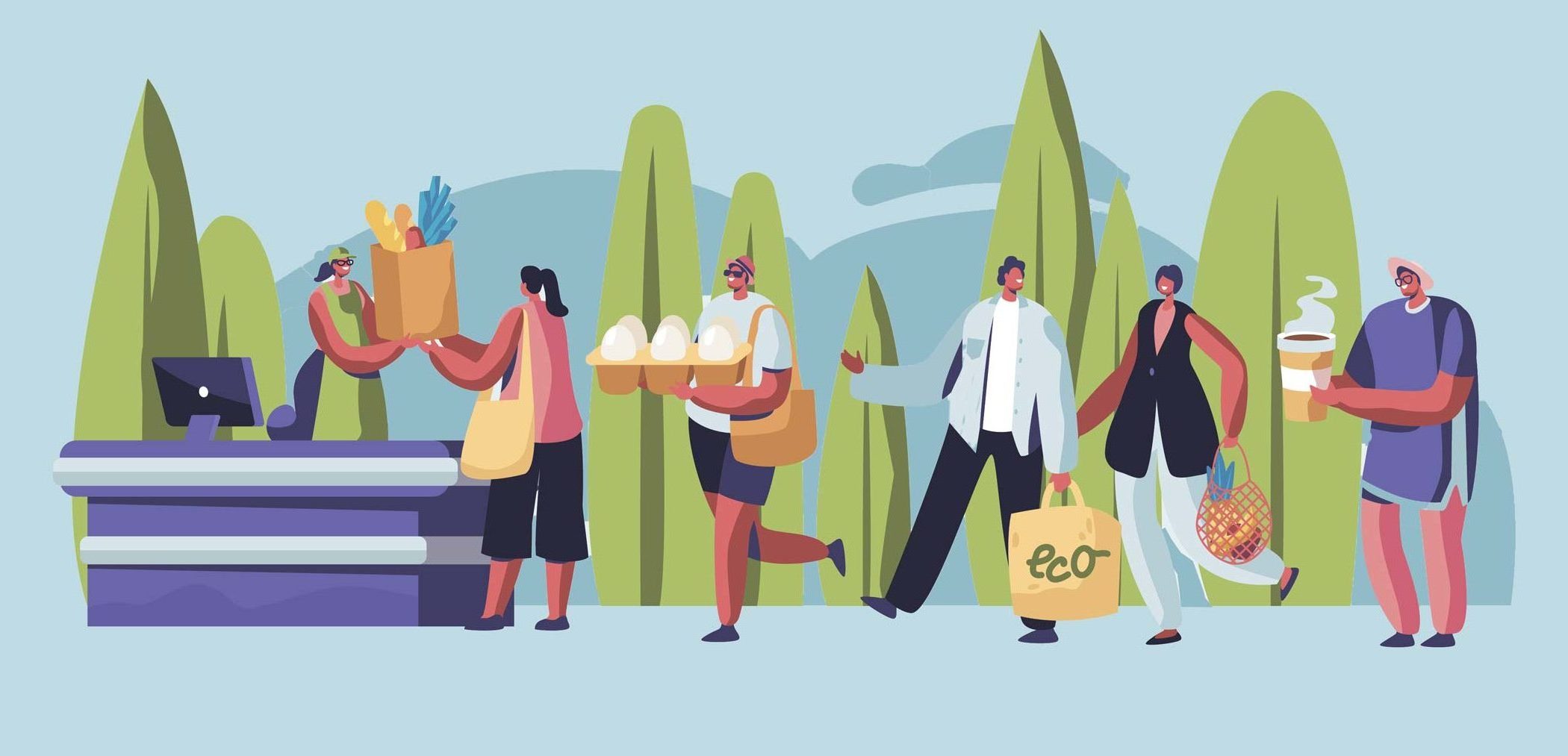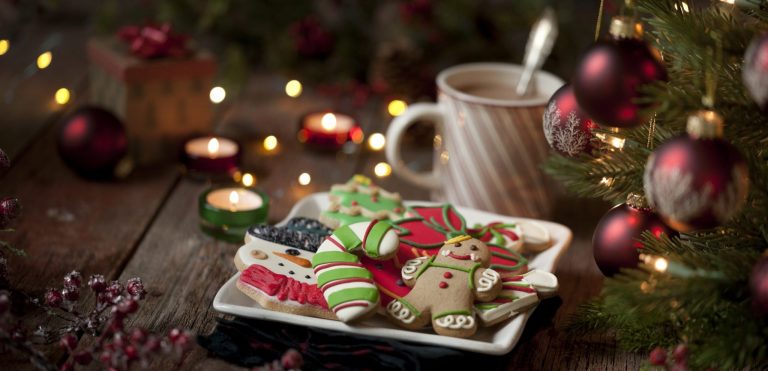Can we really live without plastic? Right now, probably not. At least not completely. It’s hard to imagine a world without plastic packaging which so effectively saves food from spoiling. Or a world without clothes made from plastic fibers, or eye drop bottles, or window frames, or yogurt cups, or IKEA. We became so dependent upon plastic that giving up all of those things may seem like too much to ask.
But since the time it was first used, the year 1907 to be more exact, plastic has managed to become a problem. Only 9 percent of all plastic waste has been recycled since 1950. The rest gets sent to landfills where it’s accumulated and stocked indefinitely. Or else, it finds its way to the streets or winds up in the ocean where it wreaks havoc on marine wildlife.
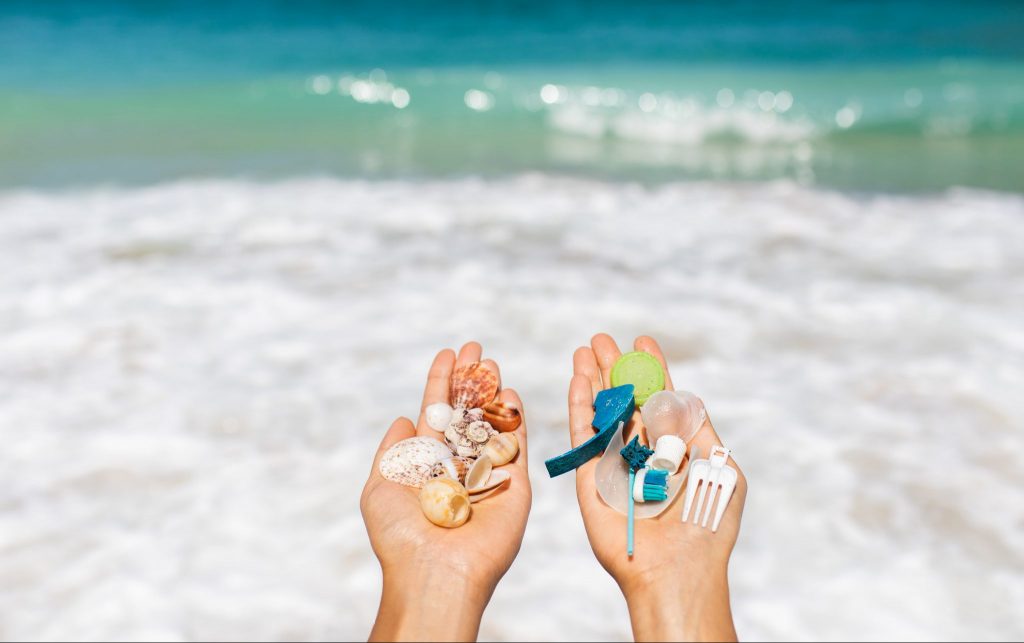
Of course, there’s no easy way to fix this – real change happens slowly. But there are definitely ways to live a more eco-friendly life and make a valuable contribution. Even if, compared to the magnitude of the problem, your contribution may seem small to you, together we can make a powerful difference.
That’s why the real question we should be asking ourselves is this: What CAN we live without?
A lot has already been said about alternatives to plastics and yet it hasn’t seemed to fully register. In this article, I tried to take a fresh look at affordable substitutes for plastic and ways we can use them in our daily lives. If you want to be more environmentally friendly, opt for these 11 replacements for plastic:
1. Cloth grocery bags
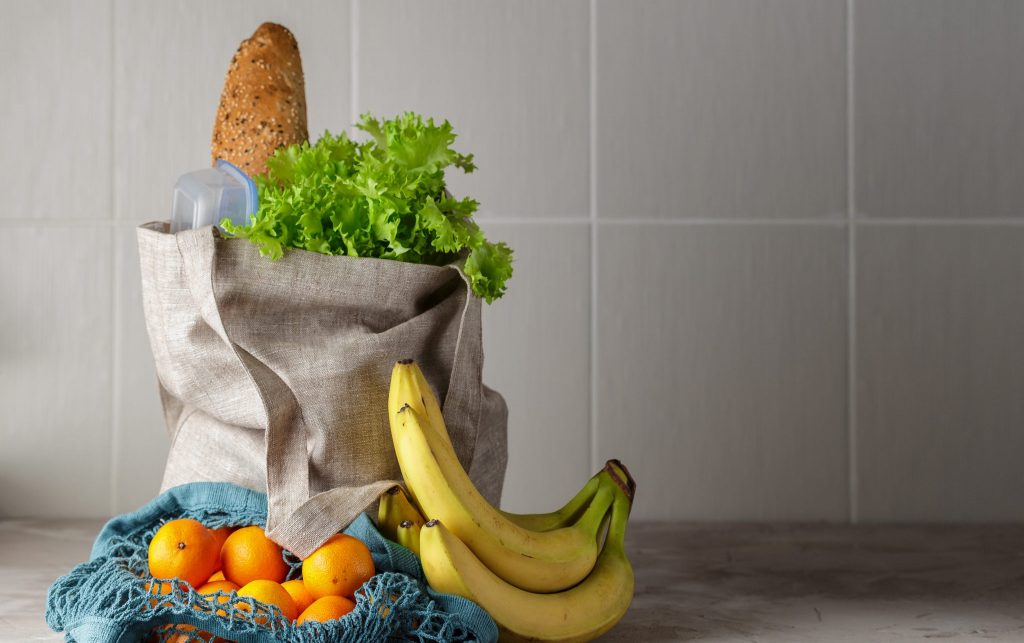
We used to have a choice at the counter: paper or plastic, remember? Now it’s all plastic. Well, unless you come prepared and bring your very own reusable shopping bag for your groceries. In today’s world of plenty you can find them in different sizes, with or without prints, they come in canvas, linen, cotton, hemp, the list goes on. They look nice and they’re practical, too. And also, let me ask you this: Has a thing called ‘a plastic bag with plastic bags’ ever lived in your cupboard? With a reusable grocery bag you will be able to forget about it for good.
2. Mesh shopping bags
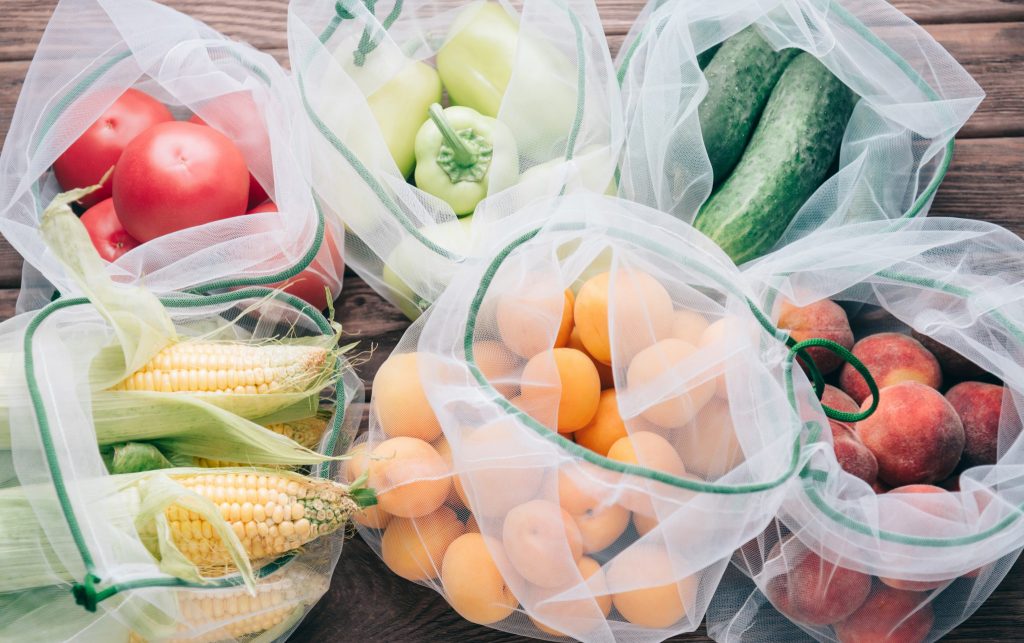
Here I am talking about smaller reusable bags you use to pack your grains, fruits, vegetables and nuts in instead of using small plastic bags. They are very handy and don’t take up too much space, they are easily foldable and washable. The real trick is not to forget to put them in your bag or backpack before leaving the house.
3. Eco coffee cups
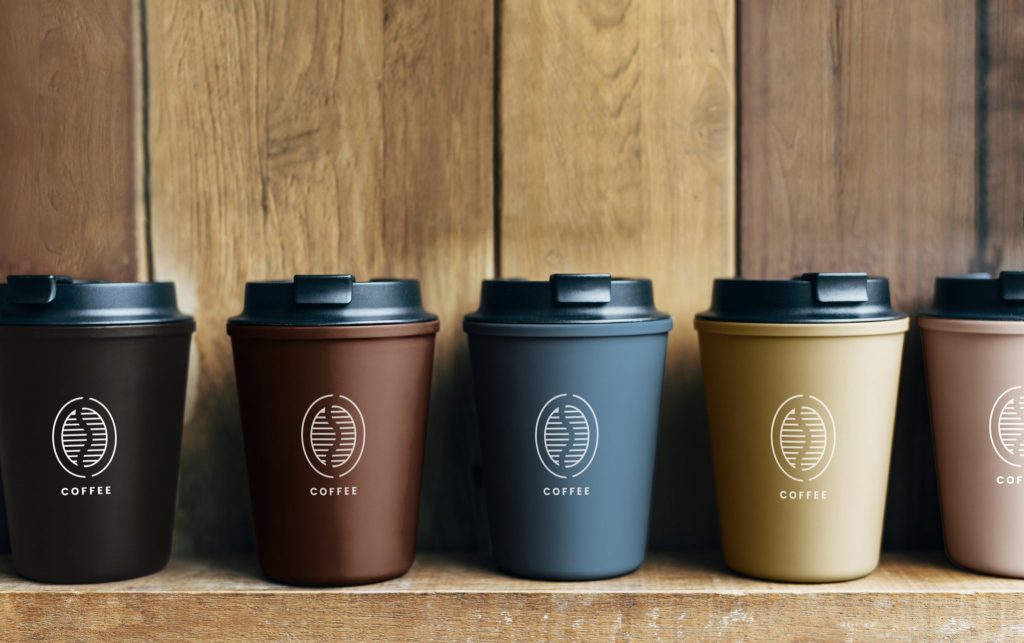
It’s true, people are becoming more and more environmentally conscious, but often as soon as they need a quick coffee fix their concerns about the world fly out of the window. Sure, not all of the disposable cups are made of plastic. But we’re talking about sustainability here, and the use of takeaway paper cups is just as bad. That’s why reusable cups will always win a victory over their recyclable sisters.
Reusable coffee cups are made from different eco-friendly materials, come in different shapes and sizes, so everyone can find their perfect fit. The most popular reusable coffee cup brands include rCup, a biodegradable alternative to plastic Ecoffee and, of course, the one that started it all – the KeepCup. Explore your market to find a suitable option.
4. Alternative straws
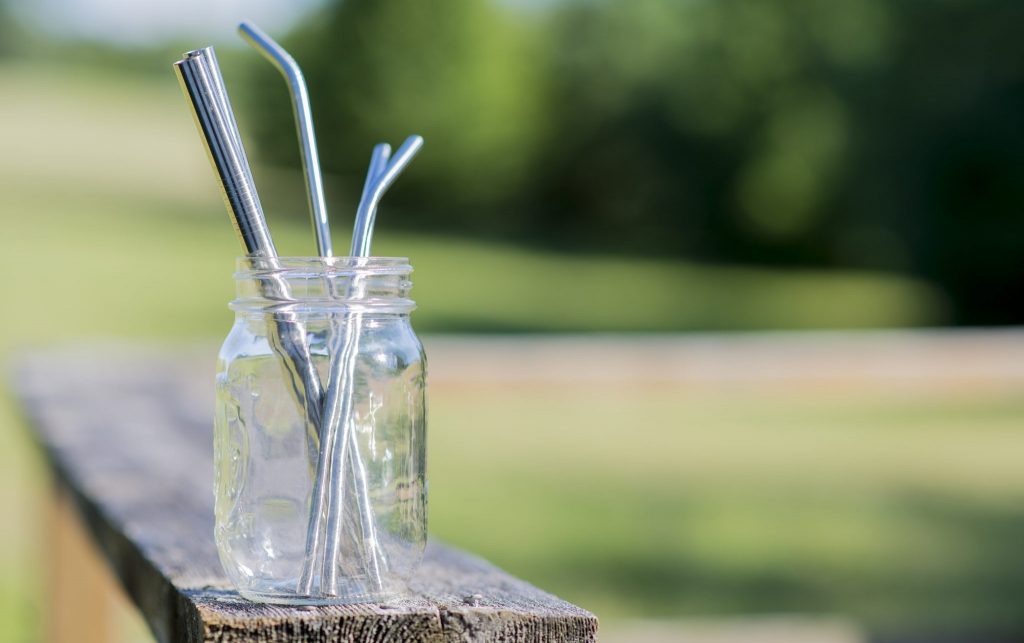
Straws can be vital for people with disabilities who rely on them daily. It means, not everyone can stop using straws altogether. But, if we have to use it, it doesn’t have to be made from plastic – try a reusable straw. Should you choose bamboo, make sure it’s 100% biodegradable, simply put: that it is fully made from organic bamboo.
Another worthy and more durable alternative to bamboo is reusable steel. Steel straws can be produced using local materials which, in turn, significantly reduces the carbon footprint. And disposable paper straws is yet another alternative to plastics which is a great tip for coffee shop and restaurant owners.
5. Bamboo toothbrushes
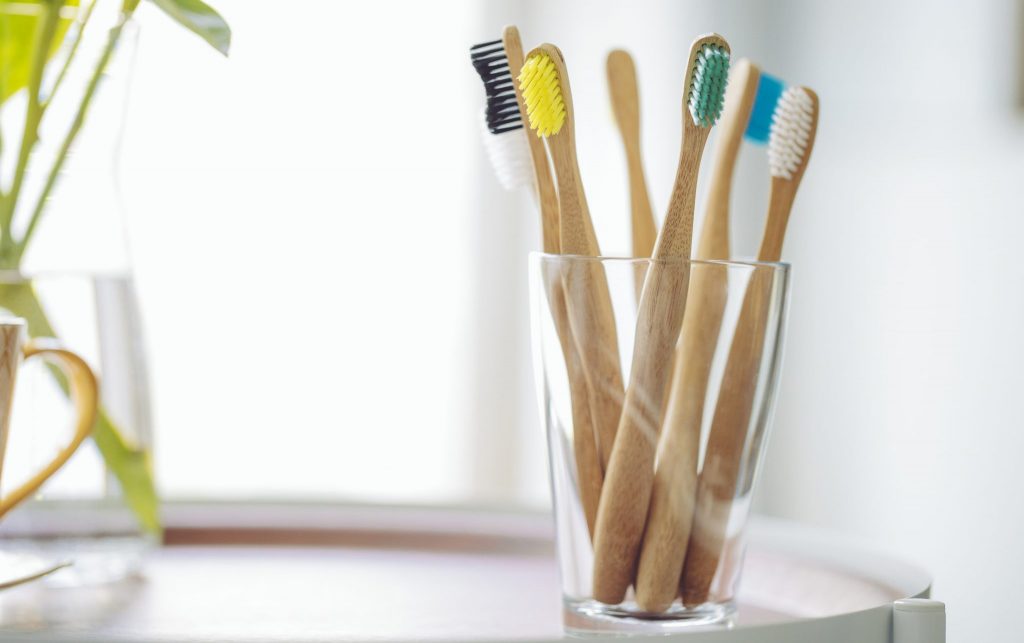
Same as with straws, it’s important to do thorough research in order to confirm that the material used in the making of brushes really lives up to its name – that no resin or cornstarch was added in the process.
Bamboo toothbrushes, whether with nylon or charcoal-infused bristles, will naturally decompose after you dispose of them. So, there’s some great news for our over-polluted world. In addition to being nature-friendly, they effectively clean the teeth, go gentle on your gums, and help fight bacteria.
6. Water bottles
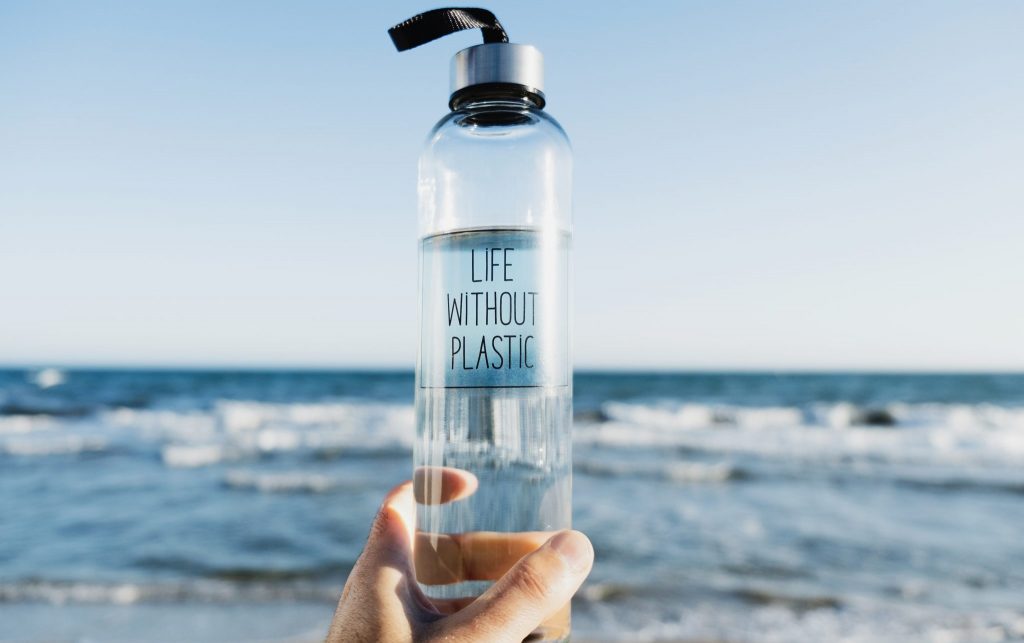
Reusable water bottles are trending right now. But, at the same time, the use of disposable plastic bottles seems to be at its highest, just the same. According to the estimate of the Container Recycling Institute, more than 60 million plastic bottles are thrown away daily in the US alone. Meanwhile, other research suggests that 1 million plastic bottles are consumed every minute all over the word. These figures are startling. I’ll even give you some time to take it all in.
Since you’re reading this article, you’re interested in putting nature first. And if you can live without one thing, it may just be a plastic water bottle. It’s not safe to use it twice and it’s clearly a waste of your money.
There are so many great options for reusable water bottles made of different materials – from stainless steel to glass and copper. So, if you haven’t already, just consider making the switch to reusable water bottles not only to feel good but to save yourself and the environment from the harmful consequences of plastic use.
7. Containers for pantry staples
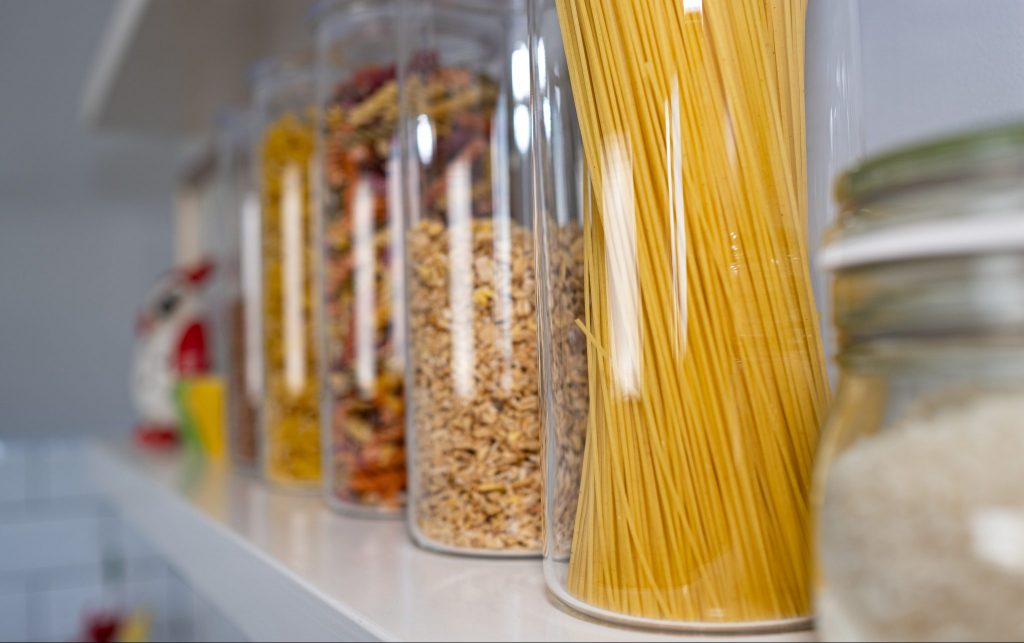
Luckily, the bulk bins with pasta, cereals, legumes and grains made an impressive comeback. So, why not use this opportunity to save your money – because it’s usually cheaper to buy in bulk – and plastic? There are different containers out there to store your dry foods in, so you’ll have lots of options if you decide to substitute plastic bags with more eco-friendly alternatives. They can be glass jars or stainless steel canisters with cute windows on the side. The latter might be the handiest option since steel is more durable than glass, and the window allows you to see how much have left and what’s inside.
8. Disposable but compostable cutlery
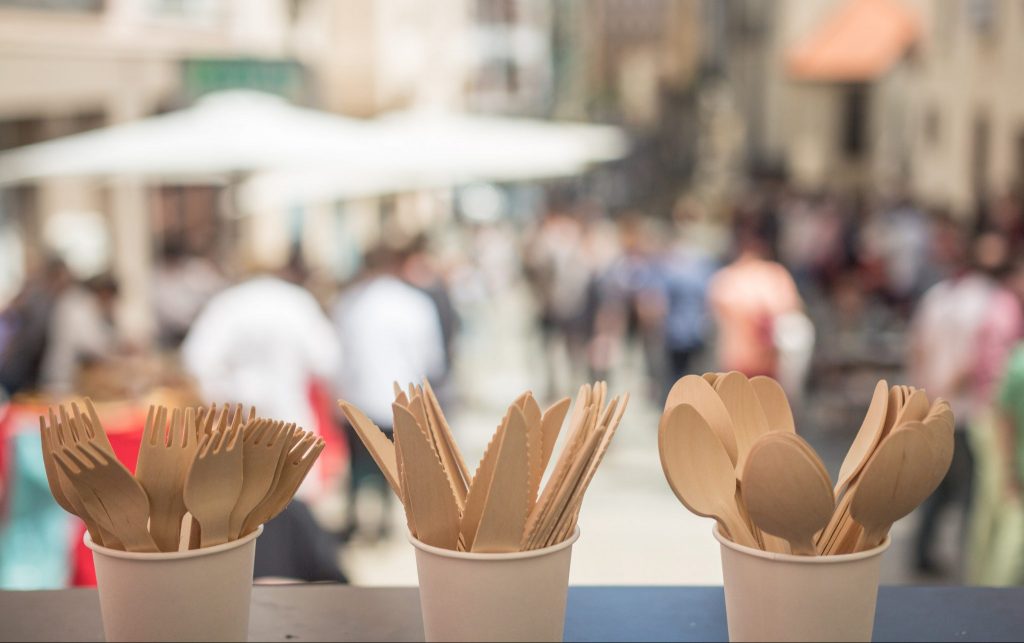
If it just so happened that you absolutely need to use disposable spoons and forks – let’s say you’re on the road – grab wooden cutlery which is not that hard to come by these days. It is completely biodegradable and FDA approved to be free of any dangerous ingredients.
9. Wood hangers
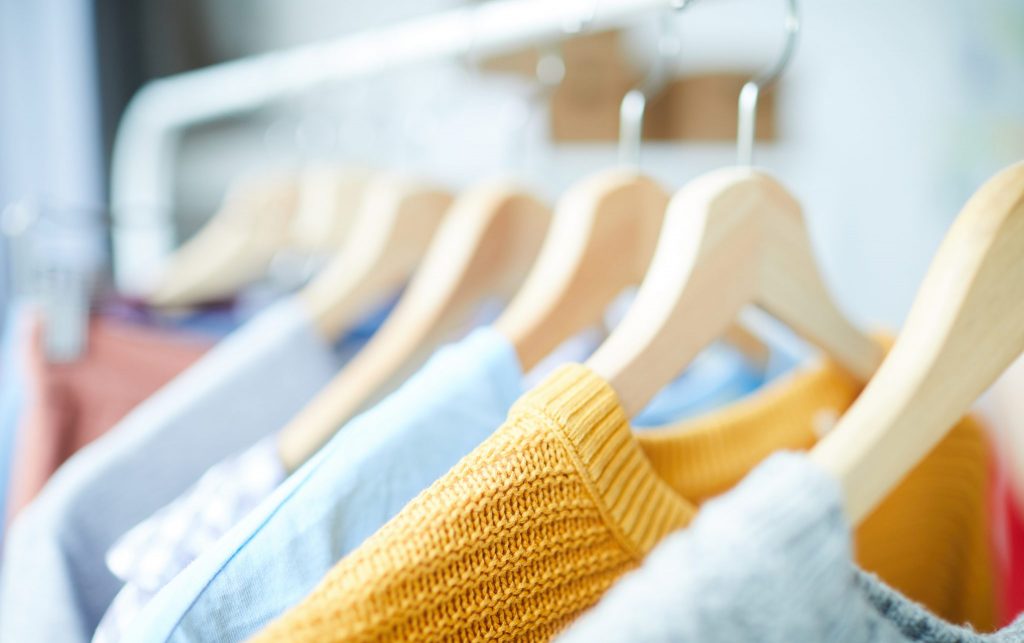
These are great not only because they’re made from compostable materials, but also because they are durable and won’t break or bend under the weight of your clothes. Many of us go for plastic hangers only because of a much lower price. Of course, in the end, you’d pay twice as much because you’ll have to replace them more often.
10. Glass food containers
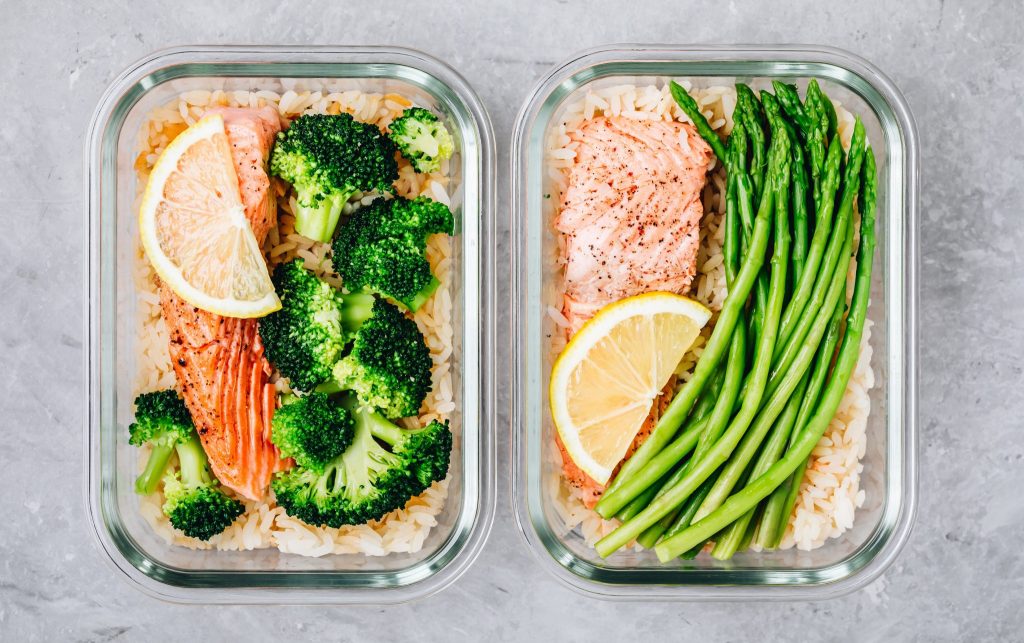
Reusable glass meal prep and storage containers are a go-to replacement for plastic ones. They are much more convenient for cooking and storing, they look good in your food cabinets, and with them you won’t have to worry about exposure to toxic chemicals used in the manufacture of plastic containers. Glass doesn’t absorb germs, it’s safe to heat food in it or wash it at high temperatures. So, what’s not to like?
11. Wooden cutting boards
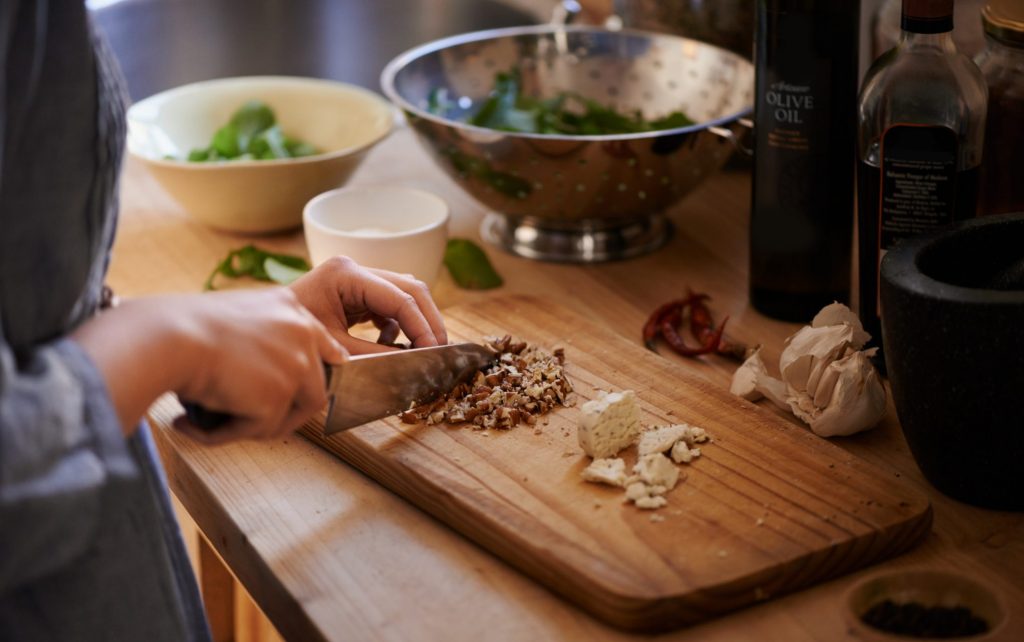
While we’re on the topic of kitchens, a good cutting board made of wood may also sound like a good investment. Plastic is much more inferior to the natural antibacterial properties of wood. Not to mention, it’s safer and more reliable. Birch, walnut, cherry oak, maple and bamboo are usually considered the best and most popular chopping board materials. The wooden cutting boards are knife-friendly, come in different sizes, with handles and without.
Of course, some can say that taking some real action is up to countries’ leaders and governments, but each and every one of us can be part of a meaningful change, too. When you choose in favor of a reusable tote bag or buy a copper water bottle instead of a disposable plastic one, you do your bit to tackle the climate crisis. And, as you know, every little bit helps. It’s because of the rapidly growing awareness that many supermarket chains are rethinking their packaging and bring in more organic produce, not vice versa. So, if we continue to stand together, more change is coming.

